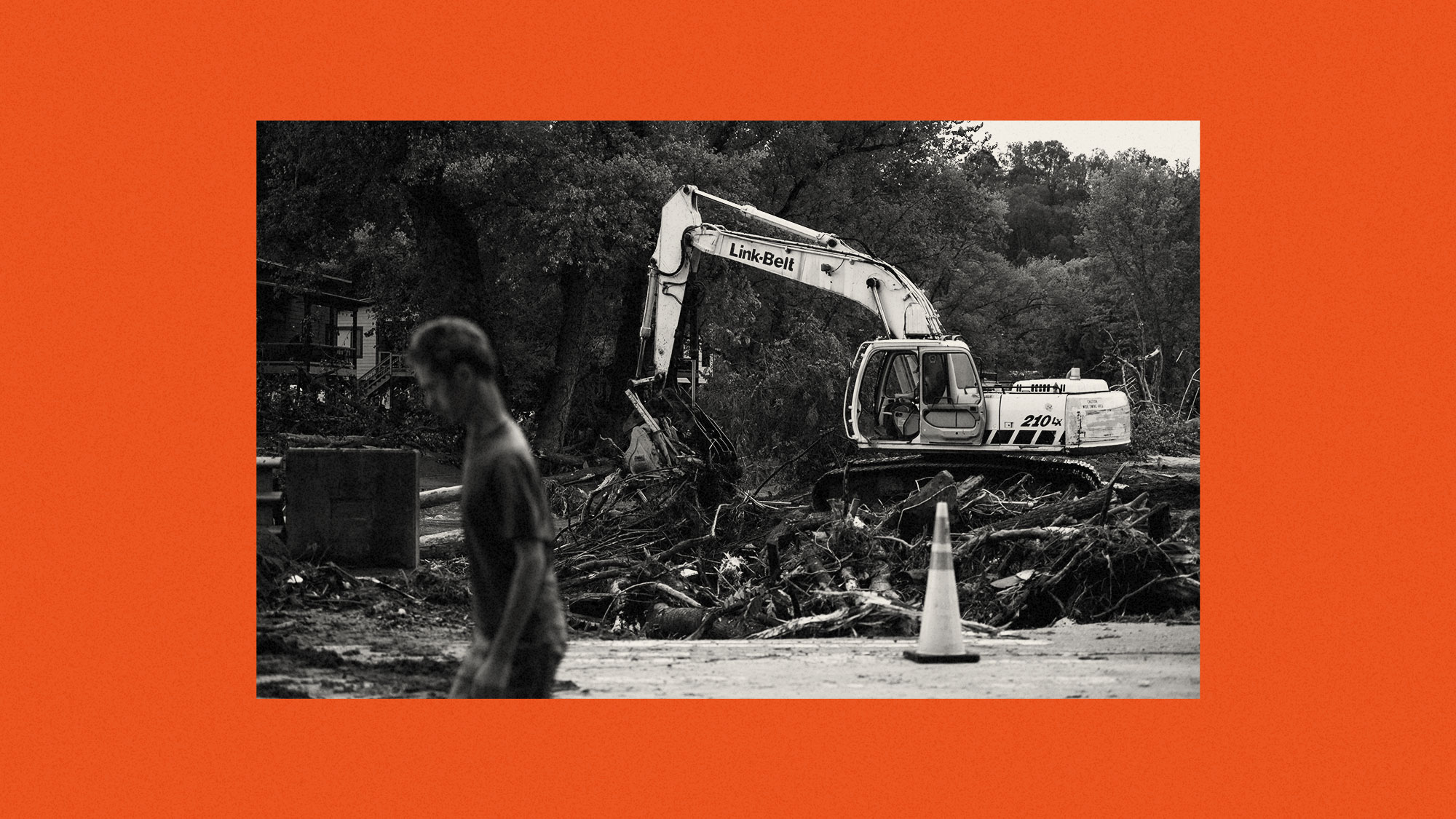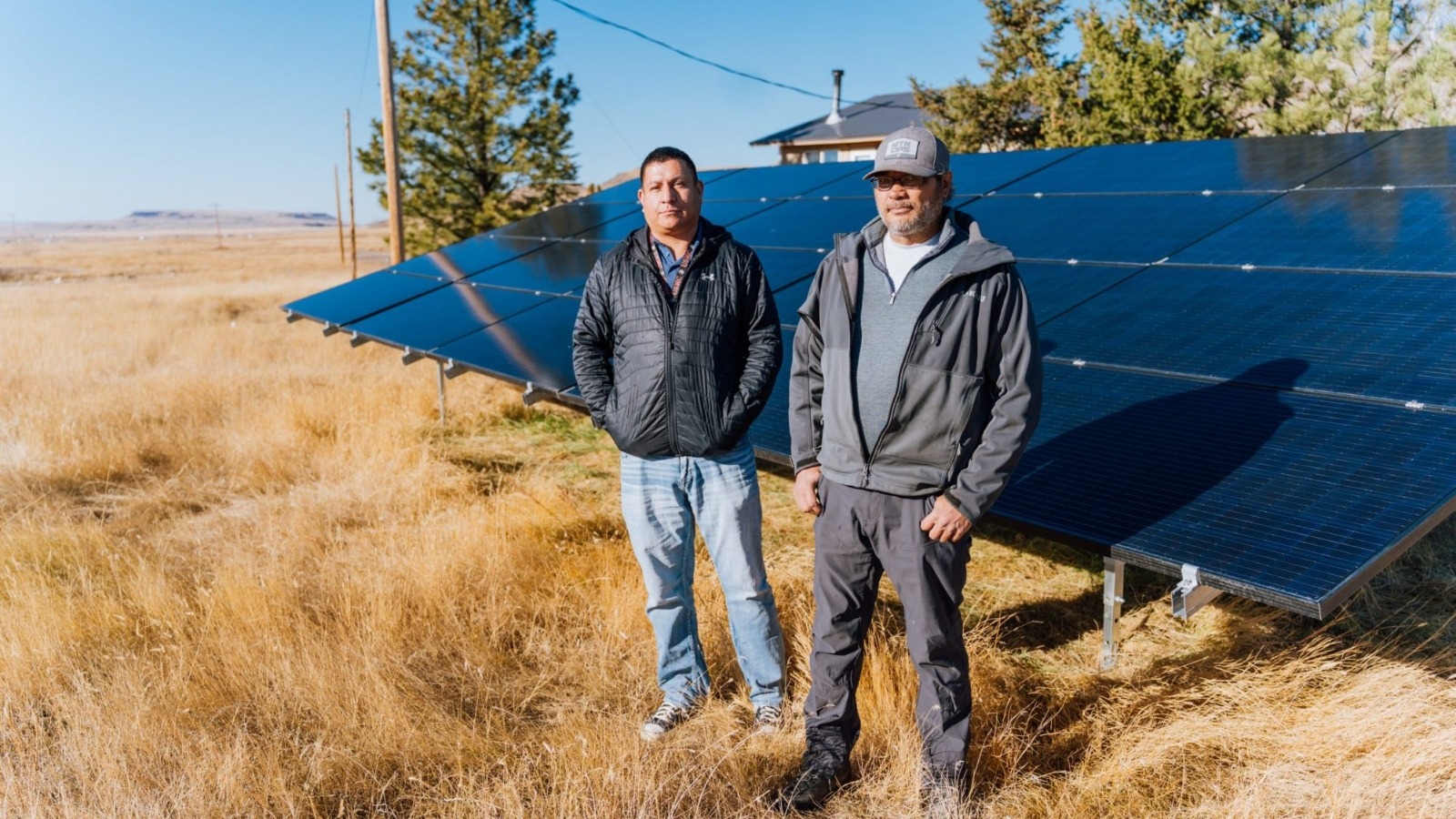On a dusty, warm day last October, nearly a month after Hurricane Helene tore across the southeastern United States, Donald Trump stood behind a podium in Swannanoa, North Carolina, to pledge funding and support to survivors of the disaster.
“In the wake of this horrible storm, many Americans in this region felt helpless and abandoned, and left behind by their government,” Trump, still a presidential candidate at the time, said. “And yet in North Carolina’s hour of desperation, the American people answer the call much more so than your federal government.”
Secure · Tax deductible · Takes 45 Seconds
Secure · Tax deductible · Takes 45 Seconds
Trump was present to, among other things, deliver an update on a GoFundMe set up by his presidential campaign for those impacted by Helene. In three short weeks, the drive had raised $7.7 million from the pockets of ordinary Americans, prominent Republican political operatives, and some of the country’s most influential and wealthiest families.
“My prayers and encouragement goes out to all the victims,” one donor commented on the fundraiser’s public wall roughly a year ago. “I hope you know that we all love you.”
It wasn’t until a few days after money had begun to come in that the crowdfunding effort announced where the contributions were going: Mtn2Sea Ministries, Water Mission, Samaritan’s Purse, and the Clinch Foundation. On October 21, an additional recipient, Sweetwater Mission, was added. Four of the five organizations are faith-based Christian charities. Most of them have close ties to Trump or to prominent supporters of his.
The Washington Post via Getty Images
Though political candidates have used GoFundMe to cover campaign costs, campaign finance and philanthropy experts told The Associated Press in October that a presidential candidate had never before used the platform in this way.
GoFundMe has become a central artery of immediate relief for disaster survivors. It raised $130 million in the wake of Helene, and hundreds of millions more for other disasters this year alone. But for all the good it does, critics have long lamented its layers of financial opaqueness. As a private platform, GoFundMe is not subject to public records requests. Anyone can set up a fundraiser, and although the site has an accountability team and lets users flag fraud, scams still happen — including those exploiting disaster victims. The platform has exploded in popularity and raised $30 billion since 2010, with significant growth in the last five years. Still, its lack of a more specific annual fundraising breakdown has prompted calls for further data transparency. The nonprofit’s annual report breaks down how much was raised for individuals and nonprofits, total number of donors, and average donation amounts, among other statistics. It also highlights certain large fundraising moments, such as Helene. But it doesn’t break down total donations by category, nor does it discuss how many campaigns hit their targets or delivered on their promises.
GoFundMe isn’t the only crowdfunding platform out there, either. There’s Kickstarter, Indiegogo, Fundable, Donorbox, and others, though many work better for small businesses and nonprofits; GoFundMe was ranked by one site as the best for personal fundraisers. Other charities and funding organizations support specific populations, like Baby2Baby, which allows donors to give to parents with young infants, or Direct Relief, which provides medical aid.
A year after Helene, what exactly Trump’s GoFundMe campaign paid for remains unclear. Grist reached out to the recipient organizations asking how much they received, and how it was spent. Several responded to an initial email and offered vague explanations, but none except Mtn2Sea Ministries responded to follow-ups for a more specific breakdown of related expenditures.
Mtn2Sea Ministries, based in St. Simon’s Island, Georgia, publicly announced and provided Grist a clear breakdown of its portion of the funds, which it used to buy $25,000 in gift cards for rural communities in Clinch County.
North Carolina-based Samaritan’s Purse received $5.2 million, which its representatives said went toward Helene aid but did not elaborate when asked. South Carolina-based Water Mission would not say how much it received, though it has published updates on its website about its work supporting communities after Helene. Sweetwater Mission, located near Atlanta, did not respond at all to the request. Grist could find no record of a “Clinch Foundation,” as the GoFundMe page called it, though it could be referring to the Clinch Memorial Foundation, in Homerville, Georgia. That group did not respond to Grist’s request for comment. GoFundMe also refused to clarify or confirm.
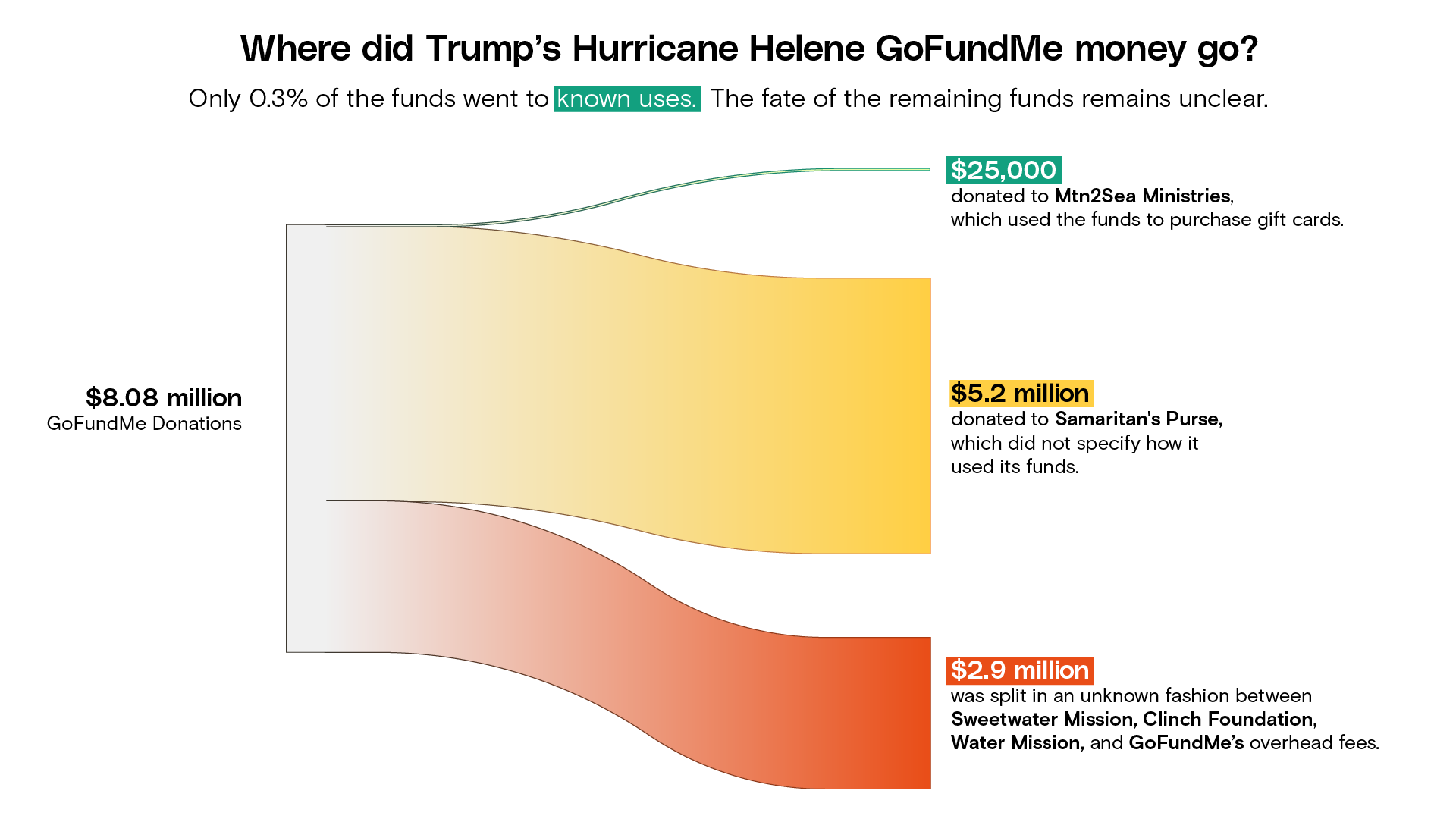
Trump has repeatedly used Helene as a political signal over the past year: It is time to overhaul American disaster relief, he has argued, by shrinking the role of the federal government in preparedness and recovery. If that vision comes to pass, GoFundMe and private entities like these evangelical nonprofits may play a larger role in disaster recovery, making the pathways of disaster aid harder than ever to track. Some historians and philanthropy experts warn it also may make such work — while potentially more expansive — less equitable in terms of who receives help.
Some of the recipients appear to have friendly relationships with Trump, Trump’s political supporters, or prominent Republicans. The GoFundMe campaign’s top donor is Kelly Loeffler, a former U.S. senator from Georgia, who joined Women for Trump at a Sweetwater Mission donation event in the wake of Helene. Trump later named Loeffler to lead the Small Business Administration. She did not respond to a request for comment about her $500,000 donation. The board of Water Mission, a clean water charity, is studded with prominent Christian business owners, some of whom are large Republican donors (for instance, a member of the Cathy family, which owns the restaurant chain Chick-Fil-A).
The crowdfunding campaign’s biggest recipient, Samaritan’s Purse, is run by Franklin Graham, son of famed evangelical leader Billy Graham and a strong, if complex, Trump ally. Graham traveled with Trump to survey storm damage in Georgia last September, less than a week after Helene. He then delivered the invocation at Trump’s inauguration ceremony in January, celebrating the election results with the words, “Look what God has done. We praise him and give him glory.” Four days later, he accompanied Trump on another visit to Swannanoa.
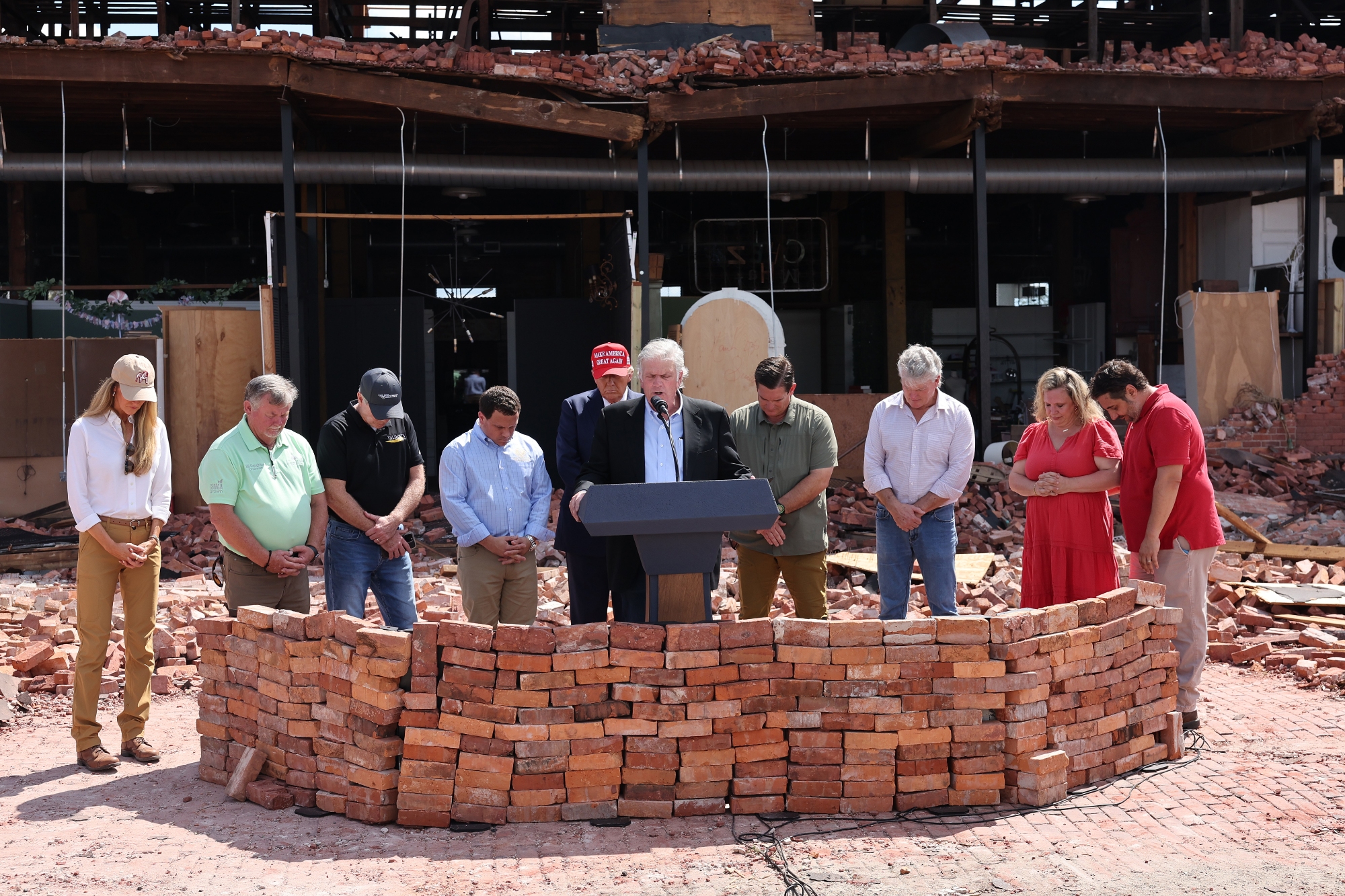
Michael M. Santiago/Getty Images
Darren Grem is a historian at the University of Mississippi who studies the ties between the political right, the business world, and American evangelism. To him, the relationships underpinning the GoFundMe campaign reflect a deep-seated political ethic that ties conservative evangelical leaders and right-wing politics together when disaster strikes. “The goal is assuaging suffering to save individuals, not fix systems,” Grem said. In the short term, disaster response is quick and expansive, with faith-based organizations fanning across disaster-impacted regions to repair homes, replace cars, and deliver truckloads of donations. In many cases, faith-based disaster relief groups coordinate with local churches, which serve as ready-made response hubs.
Humanitarian disaster aid is key to the missions of the organizations that received the GoFundMe donations — and all contributed to the recovery after Helene. If the Clinch Foundation is indeed associated with Clinch Memorial Hospital, that organization fed and housed Helene survivors. Mtn2Sea’s aid benefited some of Georgia’s hardest-hit communities. Water Mission provided water purification packets and large containers of potable water to recipients like Asheville City Schools and a church in Vilas, North Carolina (neither responded to requests for comment).
“As a Christian nonprofit organization, we believe we are called by God to serve others, and we remain steadfast in this mission, committed to carrying it out with love, excellence, and integrity while maintaining political neutrality,” Water Mission told Grist by email.
Samaritan’s Purse spokesperson Mark Barber said its $5.2 million share went into the $90-million pot the organization spent on Helene. The group, based in Boone, North Carolina, has embedded itself deeply in hurricane response and has by its own count built about 300 homes and distributed 163 campers. It has also replaced over 200 vehicles, provided household items to more than 2,700 people, and again, by its count, saved 173 souls.
Grist contacted several Helene survivors who were helped by Samaritan’s Purse, but only one responded. This person declined an interview, noting that while she disagreed with the nonprofit’s conservative values, it was building her a home and she didn’t want to upset anyone.
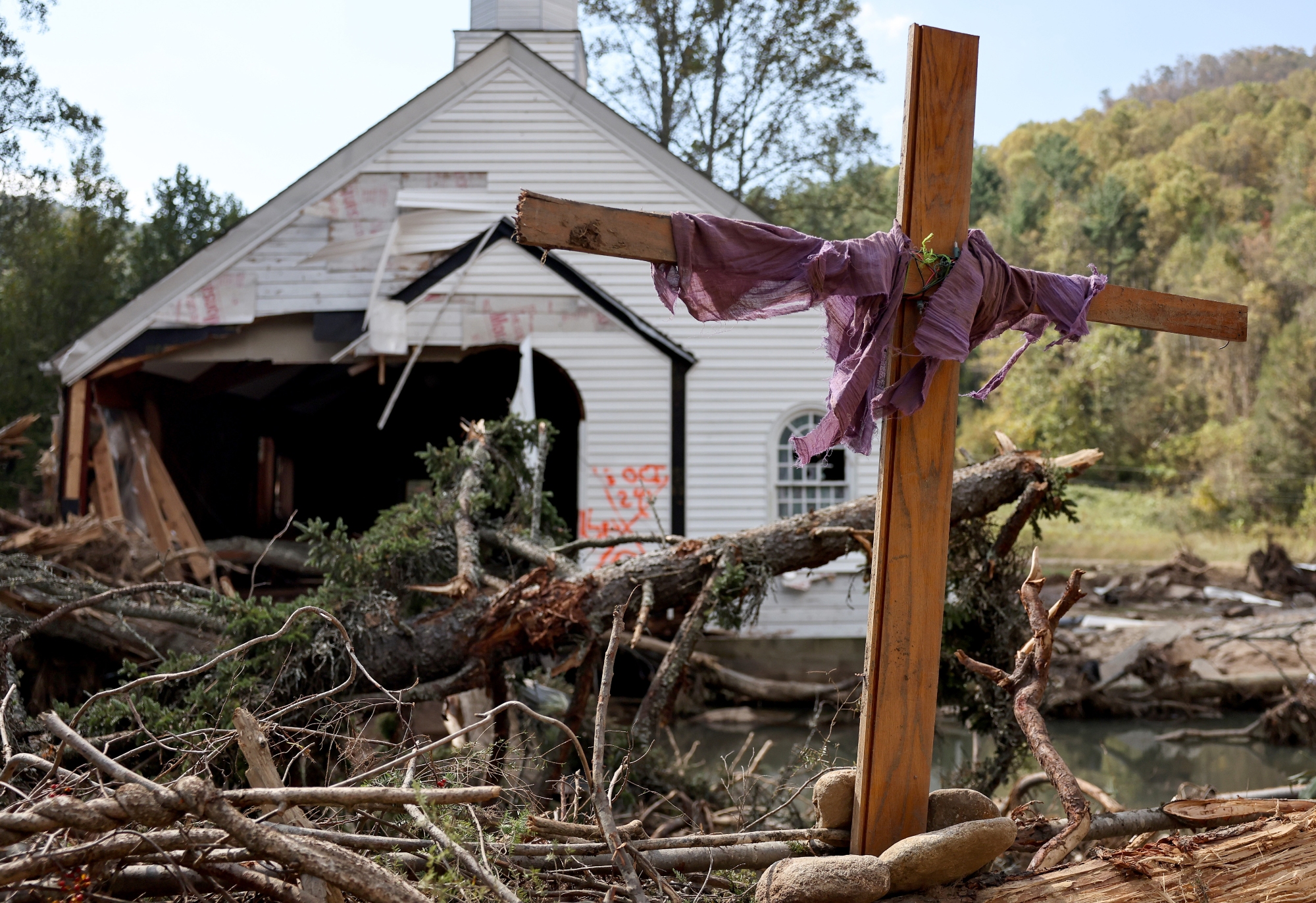
Mario Tama/Getty Images
Grist also reached out to Meredith O’Rourke, who served as the national finance director for Trump’s presidential campaign and who set up the GoFundMe, to ask why it chose these charities. She did not respond. We also contacted the fundraiser’s top donors — Ultimate Fighting Championship President and CEO Dana White, billionaire real estate investors and Trump megadonors Steve and Andrea Wynn, New York real estate investor and current Trump Middle East envoy Steve Witkoff — to ask if they had heard how the funds were spent, and why they chose to donate to the GoFundMe rather than, or in addition to, tax-deductible charities. None responded.
But the choices aren’t mysterious to experts who’ve studied the ongoing relationship between the far right and evangelical philanthropy. Both favor smaller government and individual giving over tax-based public relief, said Alison Greene, a religious historian at Emory University.
Before the sweeping economic, social, and political reforms of Franklin Delano Roosevelt’s New Deal, which were created to dig the United States out of the Great Depression, three-quarters of disaster relief went through private charities, most of which were faith-based, she said.
“Private aid organizations were really concerned with separating the deserving poor from the undeserving poor,” Greene, who is from Helene-impacted Mitchell County, North Carolina, said. The Great Depression cut so massive a swath of misery that support for federal relief ballooned. Some faith leaders and right-wing politicians opposed that, and continue to. Billy Graham, father of Samaritan’s Purse, was outspokenly among them, as are his descendants.
“Folks like Franklin Graham,” Greene added, “have this narrative that the state destroyed the work of the church.”
Despite Graham’s opposition to state disaster relief funding, his organization has received hundreds of millions of dollars from USAID and the State Department since 2016. The future of this federal funding — about 5 percent of the organization’s budget — remains uncertain, however, after USAID was more or less dismantled.

Allison Joyce / AFP via Getty Images
Grem, of the University of Mississippi, said the faith-based relief community’s alliance with Republican political actors has continued to advantage all involved.
“Evangelicals perfected the art of that deal long before anyone considered Donald Trump a viable political means or end,” Grem said.
First Amendment protections allow religious groups to sidestep federal oversight. Sometimes, Grem said, that’s a strength. “Such groups can quickly mobilize to provide immediate aid,” he said. Evangelical organizations also appear more culturally familiar to some of the communities they serve, and their speed is appealing to disaster survivors who just want a return to normalcy.
Without external checks and requirements, though, “they may misjudge local needs, duplicate efforts, or overlook or short-hop services,” Grem added. “The very same shortcomings often get criticized in bureaucracies like FEMA.” Long-term planning doesn’t really factor in, Grem added. Unlike the Federal Emergency Management Agency, religious charities’ work focuses on immediate needs and rebuilding houses, not long-term disaster risk and mitigation.
Though FEMA can be picky in disbursing aid, it must abide by federal civil rights law; private charities do not. Samaritan’s Purse and other religious charities have publicly opposed gay marriage and abortion. So have members of the Cathy family, who sit on the boards of many similar charities. It’s led some Helene victims to worry they might face differential treatment or judgment, or avoid seeking aid from such groups. Renters and undocumented immigrants are chronically overlooked by both public and private relief efforts.
To top it off, cash flow can be tricky in ministry groups — and things get more complicated with unusual circumstances like this GoFundMe. Warren Cole Smith, who directs the Christian aid transparency watchdog Ministry Watch, supports evangelical disaster relief but worries about the potential for financial mismanagement a GoFundMe presents.

Marvin Joseph/The Washington Post via Getty Images
“There are many ways to evade transparency and accountability,” he said, adding that some groups avoid filing required 990 tax forms by registering as a church even when they don’t operate like one. While Samaritan’s Purse is a disaster relief group that Smith trusts, a linked group, the Billy Graham Evangelistic Association, is registered as a church. Franklin Graham runs both organizations, which often deploy together into humanitarian missions.
“We think using a GoFundMe campaign in this way is not a good idea,” Smith said. “If President Trump had simply recommended these organizations, that way the organizations themselves would be direct recipients of the money … [and] individual donors could make up their own minds about which campaigns to support.”
GoFundMe, for its part, told Grist that the fundraising campaign was verified by its trust-and-safety team, a process that requires drives to “be clear who the organizer is, as well as the person, business, or charity they are raising funds for, the organizer’s relationship to the recipient of the funds, and how the funds will be used,” the organization said. If the team feels information is missing, they put the fundraiser on hold.
Since then, FEMA, though diminished, continues to make a point of opening grant opportunities to faith-based organizations and knocking down political barriers to religious influence.
The Helene campaign is closed, but some previously scheduled monthly donations continued to roll in as of July, and new donors were contributing in May. It is unclear where this new money is going, given that the last official spending update came 11 months ago. GoFundMe representatives assured Grist that the funds have all been distributed to the listed recipients.
Among the donors with messages of support was western North Carolina resident Stacie Johnson, who gave the GoFundMe $5, begging the campaign to notice her family’s plight — her father had lost his home and had no flood insurance. The same day Trump’s drive launched, on September 30, 2024, she had started a campaign for her father. But while Trump’s GoFundMe coffers grew, Johnson’s fundraiser brought in only an eighth of what her family needed. Johnson did not respond to a request for comment.
“I am curious when this money will be distributed,” Johnson wrote on the Trump drive’s page. She detailed her father’s situation before adding, “I pray that someone will see fit to help him rebuild very soon. There’s no other way than kind-hearted souls’ donations at this point.”
Source link
Katie Myers grist.org


